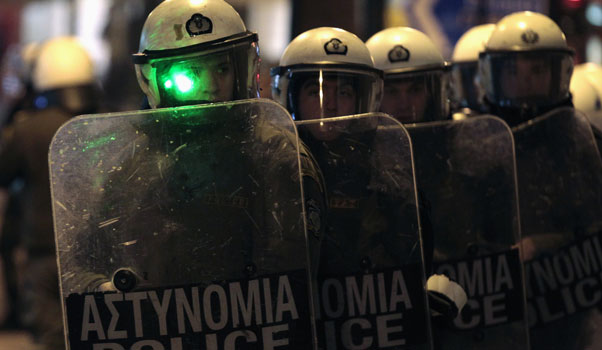Second bailout agreed for Greece
Eurozone governments finally agree a second bailout package for Greece after months of wrangling and a last round of more than 12 hours of talks in Brussels.

Ministers had been at odds over figures – eventually settling on 130bn euros – financial targets and Greek government austerity pledges, but agreed on a deal they hope will put beleagured Athens back on the path to economic recovery.
But the deal is based on long-range forecasts of Greece’s best-case-scenario debt reduction chances over the next eight years, with some pundits instantly dismissing the deal as undeliverable.
In return for the latest 130bn euro (£110bn) bailout and a private creditor debt write-off worth about another 100bn euros (£84bn), the Greek government has pledged to implement fully a severe austerity package of pay, pension and jobs cuts, as well as finding savings of 325m euros (£270m) in this year’s national budget.
The deal nearly fell through over demands that Athens cuts its projected debt level to around 120 per cent of national wealth by 2020.
The Greek economy received a 110bn euro (£91bn) bail out from the EU and IMF in 2010, but it was not enough to lift Greece out of crisis.
The vast majority of the funds this time around will be used to finance the bond swap and ensure Greece’s banking system remains stable; 30bn euros will go as “sweeteners” to get the private sector to sign up to the swap; 23 billion euros will go to recapitalise Greek banks.
A further 35bn will allow Greece to finance the buying back of the bonds. Next to nothing will go directly to help the Greek economy.
-
Latest news
-
Taylor Swift’s new break-up album breaks records3m

-
NHS trust fined £200K for failings that led to death of two mental health patients3m

-
Sunak vows to end UK ‘sick note culture’ with benefit reform3m

-
‘Loose talk about using nuclear weapons is irresponsible and unacceptable’, says head of UN’s nuclear watchdog3m

-
‘There wasn’t an Israeli attack on Iran,’ says former adviser to Iran’s nuclear negotiations team7m

-




